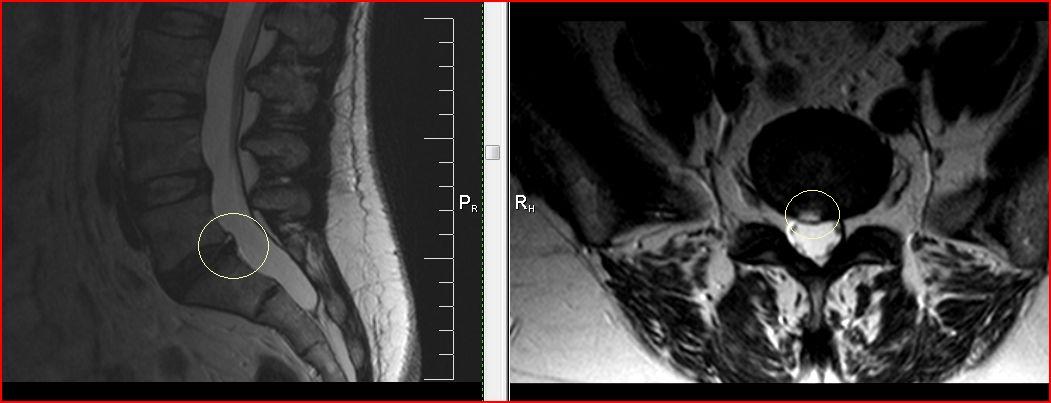First, let me say how it just tears my heart out to watch someone have such substantial complications from what seemed like a very simple and ordinary ADR surgery. I came to know Kelly as someone who was very positive about the surgery and was looking forward to the improvement that was expected. Her indications were very clear and her case seemed to be very straightforward. Having done a good amount of research, and being a nurse, she had no illusions about the surgery, risks, complications, etc… These issues were all as well understood as they can be. She had done enough research to know that she wanted to go to Zeegers. I had already been to the BetaKlinik and was able to give my first-hand account of what a first-class facility it was. Kelly was very excited and ready to move on with the next chapter in her life.
Kelly has maintained such a positive attitude through this ordeal, she is an inspiration. I know that she must have her moments, but it’s still amazing to me to hear her speak in such positive terms. Having to self-cath every few hours and to have lost control of her bowel function seems like such a horrible outcome, yet she still speaks of the pain reduction she has realized as being so substantial that she considers the surgery a success. She still extolls the virtues of the BetaKlinik, the doctors and staff.
One of the things I’ve seen about the best surgeons in the world is that they do not just accept the poor outcomes. They study them intensely to see if there is something they’ve missed, or if there is something they might have done better or differently that could have made a difference. I’ve been able to discuss Kelly’s case extensively with Dr. Zeegers. From his perspective, the surgery went well. There was nothing unexpected and no reason to expect such a complication. While hematomas are relatively rare, they do occur and with spine surgery, the results can be devastating. The good surgeons and hospitals are looking for them, because a fast response is key. Fortunately for Kelly, they were on top of things and she was being rushed into surgery less than 24 hours after her ADR surgery was over. The hematoma was handled in an appropriate time frame and again, there was no reason to expect such an outcome.
(*** Please remember, I am not a doctor. I am relating what I have perceived and I can be completely wrong. I do not speak for Dr. Zeegers, the Betaklinic, etc…)
While it is impossible to know for sure what happened, reviewing Kelly’s case gives some speculation about what may be the reason for the severity of the complication. Like all spine surgeons, Dr. Zeegers has seen his share of hematomas, but results like Kelly’s are something he’s not seen in his career of thousands of lumbar spine surgeries. What can be different about Kelly’s case? While her case seemed very straightforward, her annular tear us unusually large. This may be part of a triple or quadruple whammy that all add up to the unexpected severity of the symptoms from the hematoma. With the large annular tear, abutting the dura, it may be possible that the dura was already compromised or weakened, such that the impact of a hematoma is substantially worsened. Perhaps a hematoma coupled with a normal sized tear or more room in the canal area or a stronger (or uncompromised) dura would have resulted in the normal outcome: surgery to deal with the hematoma, but not the ongoing cauda equine syndrome that she’s experiencing. Again, there is no way to know for sure.
Note that I share information about her case with her prior permission. This is one big annular tear:

When I was talking to Kelly a few days ago, she said something that stuck with me. I had been talking about her positive attitude and how I thought it helped her recovery, remaining positive, dealing with the issues as best she can, and lashing out in a negative way. To paraphrase, she said something like, “That takes a lot of energy to be that pissed off. I’d rather not hang on to all the negativity and negative energy!”
I hope I’m never faced with the adversity that she’s experiencing, but if I do, I hope I can face it and make the best of it like she has done. Sadly, dealing with so many spine patients, the number of poor outcomes are substantial. We all know what we are facing when we elect to undergo such a big surgery (or any spine surgery for that matter.) We never think it can be us. Very few are prepared for a poor outcome.
The good news is that she has seen improvement in the last month. I’m sure that she’ll see frustrating plateaus that will scare her into thinking that the improvement has stopped. But she’s still improving and that gives us hope. We can all benefit from getting some of her positive outlook. It's wonderful that she can spread it around so freely without diminishing her supply. That is a talent we should all work on.
All the best,
Mark